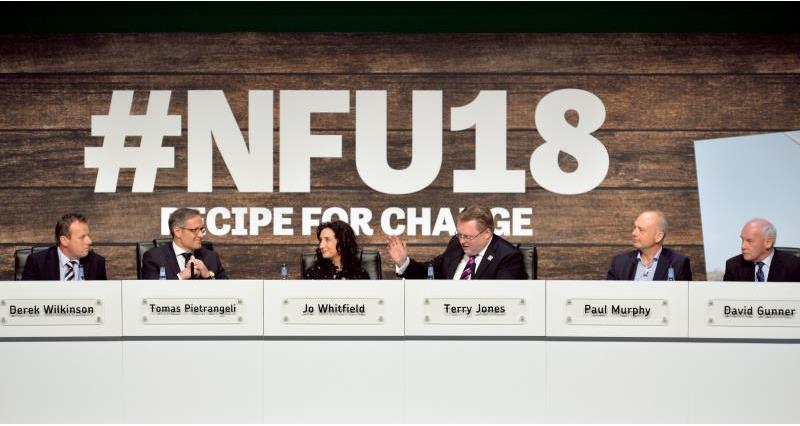With the clock ticking towards the biggest upheaval in a farming generation, leading food chain businesses provided insight on their preparations for change, during the final session of NFU Conference.
For Jordans Cereals CEO Paul Murphy, the model in recent times has been “made in Britain, exported around the world”, with the brand successfully stressing its provenance and environmental credentials to increasingly wide markets.
He said the appetite for healthy, high-quality British products was an enduring strength, but that Jordans’ contingency planning nonetheless included some radical options.
“For our European business we need frictionless, tariff-free access to the European Union,” he said.
“I’m very worried about how it will be delivered. If we don’t achieve that and fall back on the WTO rules we would need to change our business model and the contingency we would have to look at is taking some of our operations out of the UK and placing them into the European Union and the supply base along with that.”
Arla UK MD Tomas Pietrangeli had also conducted an in-depth analysis of risks and opportunities.
He said: “We’ve done extensive scenario planning; if there is a free trade agreement, if not, if we are still in the customs union, or if we revert back to the WTO. We have a very clear picture of the implications for Arla Foods and very specific trigger points in terms of ‘if this scenario happens, what type of investment would we have to do?’.”
Derek Wilkinson, MD at the G’s growers group’s Sandfields Farms, voiced a concern shared by the panel that post-Brexit uncertainties on labour availability and costs have put productivity and efficiency high on the agenda. He said: “It’s uncertainty that concerns us most and we need answers now.
“Mechanisation would reduce our reliance on labour and it’s something we’ve been working on for some time. We’ve had big successes on increasing the efficiency of labour, and that’s something we continue to focus on.”
Dovecote Park supplies British beef, veal and venison to Waitrose supermarkets nationwide. CEO David Gunner added: “The case from suppliers for access to labour has been made well and frequently. I don’t think Defra is under any illusion, but farmers will have to use other strategies to reduce dependence.”
Co-op Food CEO Jo Whitfield felt that the best preparation for change was rooted in a deeper understanding of all elements of the supply chain. She said: “We feel this is a moment to work collaboratively. We need to work with one voice and encourage open, transparent sharing.”
WATCH AGAIN
Note: This sessions starts at 2hrs 31m 29s
